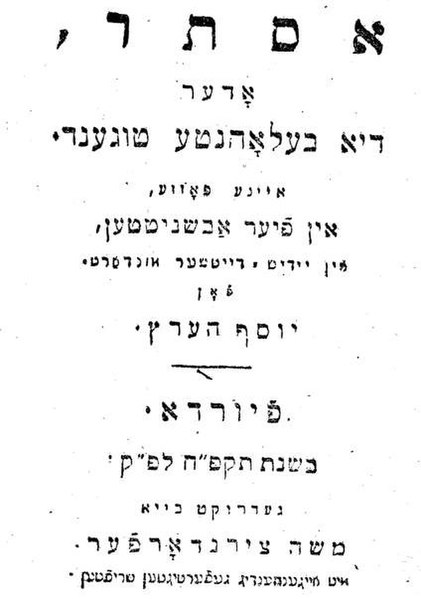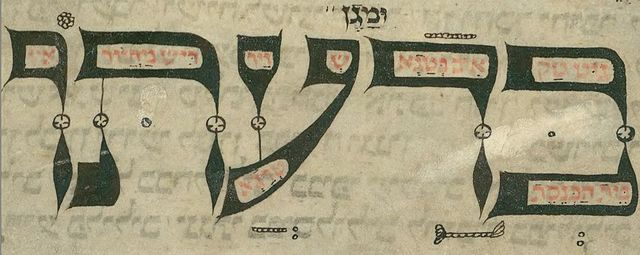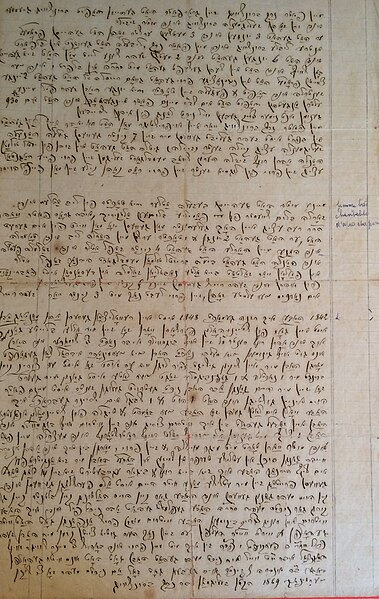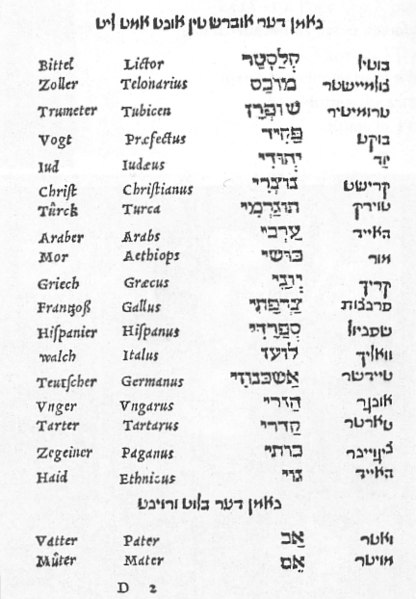Isaac Leib Peretz, also sometimes written Yitskhok Leybush Peretz was a Polish Jewish writer and playwright writing in Yiddish. Payson R. Stevens, Charles M. Levine, and Sol Steinmetz count him with Mendele Mokher Seforim and Sholem Aleichem as one of the three great classical Yiddish writers. Sol Liptzin wrote: "Yitzkhok Leibush Peretz was the great awakener of Yiddish-speaking Jewry and Sholom Aleichem its comforter.... Peretz aroused in his readers the will for self-emancipation, the will for resistance against the many humiliations to which they were being subjected."
Peretz, depicted on an old Yiddish-language postcard
Left to right, Sholem Aleichem, Peretz, and Jacob Dinezon
Dinezon and Peretz
Yiddish is a West Germanic language historically spoken by Ashkenazi Jews. It originates from 9th century Central Europe, providing the nascent Ashkenazi community with a vernacular based on High German fused with many elements taken from Hebrew and to some extent Aramaic. Most varieties of Yiddish include elements of Slavic languages and the vocabulary contains traces of Romance languages. Yiddish has traditionally been written using the Hebrew alphabet; however, there are variations, including the standardized YIVO orthography that employs the Latin alphabet.
The opening page of the 1828 Yiddish-written Jewish holiday of Purim play Esther, oder die belohnte Tugend from Fürth (by Nürnberg), Bavaria.
The calligraphic segment in the Worms Machzor. The Yiddish text is in red.
The South-West Yiddish account of the life of Seligmann Brunschwig von Dürmenach describes, among other things, the anti-Semitic events of the revolutionary year 1848. In the collection of the Jewish Museum of Switzerland.
A page from the Shemot Devarim (lit. 'Names of Things'), a Yiddish–Hebrew–Latin–German dictionary and thesaurus, published by Elia Levita in 1542







